Introduction
Why do rabbits poop so much?
Picture this: fluffy bunnies hopping around, so cute and adorable. But have you ever wondered why these furry creatures seem to be pooping machines?
Well, my curious friends, I am here to unravel the mysteries and reveal the secrets behind a rabbit’s frequent pooping habits.
From their unique digestive system to the amazing wonders of cecotropes, we are about to embark on an adventure that will have you on the edge of your seat. Get ready to explore the connections between a rabbit’s activity level, their diet, and even their poop consistency.
So grab a cup of tea, cozy up in your favorite chair, and get ready to be amazed. Whether you’re a seasoned rabbit owner or just a curious soul, this article is the rabbit hole you’ve been waiting to fall into.
Get ready for a wild ride – it’s going to be pooptastic!
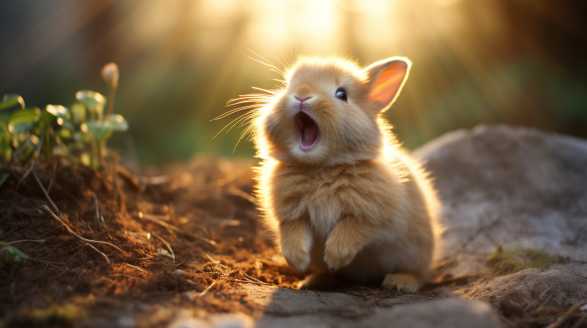
Key Takeaways
- Rabbits have a unique digestive system that requires a constant flow of fiber-rich foods.
- They produce two types of feces: regular pellets and cecotropes, which are nutrient-rich and consumed by rabbits.
- The activity level of a rabbit can affect their pooping habits, with active rabbits pooping more frequently.
- It is important to provide an active lifestyle for rabbits to maintain a healthy digestive system.
- Stress can disrupt a rabbit’s digestive system and lead to changes in their bowel movements.
- It’s crucial to minimize stressors and provide a safe and consistent environment for rabbits.
- Changes in a rabbit’s diet can impact their poop consistency, with too little fiber leading to soft stools and too much fiber causing dry, hard droppings.
- Gradually introducing new foods and ensuring hydration can help maintain healthy poop production.
- Monitoring a rabbit’s poop is important for detecting health issues or changes in their digestive system.
- Fiber plays a vital role in a rabbit’s diet, promoting a healthy digestive system and poop production.
- Providing a balanced diet with plenty of hay and fresh greens is essential for a rabbit’s digestive health.
- The gender of a rabbit can influence their pooping habits, with males producing more poop and females adapting their habits during pregnancy or nesting.
- Monitoring and understanding age-related changes in poop can help detect health issues and ensure a rabbit’s well-being.
- Regularly observing a rabbit’s poop can help monitor their health, make dietary adjustments, and detect digestive disorders or parasite infestations.
How a Rabbit’s Activity Level Affects Their Pooping Habits

Welcome, readers! Today, we are going to explore a fascinating topic that will make you think twice about the charming rabbits hopping around.
Well, prepare to be amazed, because it’s time to dive down the rabbit hole and uncover the secrets behind their peculiar behavior.
The Bunny Basics
Before we look into the connection between a rabbit’s activity level and their pooping habits, let’s briefly go over some basics to set the stage. Rabbits are small mammals that belong to the Leporidae family.
Rabbits have a unique digestive system that requires a constant flow of fiber-rich foods to keep things running smoothly.
1. Rabbit Poop: A Miracle of Nature
You might be wondering, what’s so special about rabbit poop? Well, dear readers, rabbit poop, also known as “cecotropes,” is much more than meets the eye.
The common hard, round, and dry pellets you often notice are just the tip of the iceberg. The other type, cecotropes, is wet, sticky, and nutrient-rich.
Cecotropes are not excreted by rabbits like regular feces. Instead, they are re-ingested by rabbits through a fascinating process called “coprophagy” or “cecotrophy.”
Bizarre, isn’t it? But, there’s a perfectly good reason behind this peculiar behavior.
2. The Wonders of Cecotropes
Cecotropes are packed with essential nutrients, including vitamins, amino acids, and beneficial bacteria. By consuming their cecotropes, rabbits get a second go at extracting the maximum nutrition from their food.
The Energizer Bunny Effect
Now that we understand the basics, let’s look into how a rabbit’s activity level intertwines with their pooping habits. Brace yourselves, because things are about to get fascinating!
1. Active Rabbits = Frequent Poop Machines
Have you ever seen a rabbit sprinting around, leaping, and doing binkies (those cute mid-air spins)? Well, those energetic bunnies are true champions when it comes to pooping!
Consequently, they produce more cecotropes and pass more dry pellets, resulting in frequent pooping sessions.
2. Sedentary Bunnies = Slower Pooping Pace
On the flip side, if a rabbit leads a sedentary lifestyle, their digestive system may slow down a tad. As a consequence, their pooping habits might become less frequent.
3. Striking a Balance: A Healthy Pooping Regimen
To maintain a healthy digestive system, it’s crucial to strike a balance between activity level and pooping habits. Moderately active rabbits tend to have a steady and regular pooping regimen.
Active Lifestyle Tips for Your Bunny
Now that you know the relationship between a rabbit’s activity level and their pooping habits, it’s time to put that knowledge to good use! Here are some tips to keep your bunny happily hopping and pooping like a champ:
1. Daily Exercise – A Leap to Good Health
Engage your rabbit in daily exercise routines. Encourage them to explore, hop, and delight in playtime activities.
2. Toys and Games – Keep the Fun Rolling
Provide an array of stimulating toys and games to keep your bunny mentally and physically active. From puzzle toys to tunnels and chew toys, these engaging activities will help keep your bunny entertained while boosting their activity level.
3. Space to Roam – The Freedom to Frolic
Ensure your rabbit has enough space to roam and explore. A spacious and bunny-proofed area will encourage them to hop around and fulfill their natural instincts.
4. Social Interaction – Bunny Buddies are Best
Rabbits are social creatures by nature. Pairing them with a compatible bunny companion can boost their activity level and overall well-being.
5. Balanced Diet – Fiber, Fiber, and More Fiber
Maintaining a balanced diet is paramount to a rabbit’s health. Offer your rabbit a variety of hay, fresh greens, and limited amounts of pellets.
Congratulations, dear readers! You’ve journeyed through the intricacies of a rabbit’s activity level and its impact on their pooping habits.
Now, armed with this knowledge, you can provide your furry companion with the love, care, and opportunities they need to maintain a happy, healthy, and pooping lifestyle. So, go ahead, let your bunny embrace their natural instincts and hop into a delightful world of energetic poops!
The Effect of Stress on Rabbit Bowel Movements: Unveiling the Connection
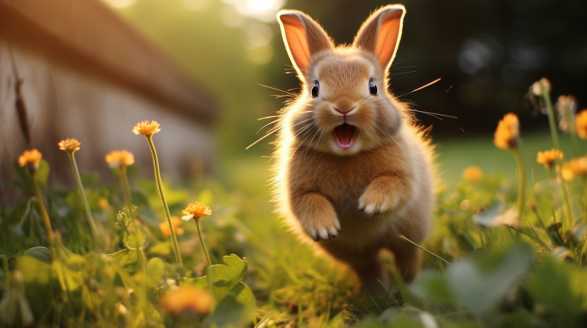
As a rabbit enthusiast and veterinarian, I have always been fascinated by the intricate relationships between stress and various bodily functions of our beloved furry friends. One particular area that has captivated my attention is the connection between stress and rabbit bowel movements.
Stress: A Common Companion
Stress is an inevitable part of life, not only for humans but also for our adorable rabbit companions. Various factors can induce stress in rabbits, such as changes in their environment, encounters with predators, introduction of new companions, and even loud noises.
The Delicate Balance of Rabbit Bowel Movements
Rabbit bowel movements play a vital role in their overall health and well-being. These small, pellet-shaped fecal droppings, also known as cecotropes, are packed with essential nutrients that rabbits need to maintain optimal digestive function.
Stress and Gastrointestinal Motility
Stress can disrupt the delicate balance of gastrointestinal motility in rabbits, leading to changes in their bowel movements. When a rabbit is under stress, the normal rhythms and contractions of the digestive system may become altered.
Common Stressors Affecting Rabbit Bowel Movements
Now that we understand the connection between stress and rabbit bowel movements, let’s explore some of the common stressors that can affect our furry friends:
1. Environmental Changes
Rabbits are creatures of habit, and any sudden changes in their environment can induce stress. Moving to a new house, rearranging furniture, or even introducing a new decoration can disrupt their sense of security and cause changes in their bowel movements.
2. Handling and Social Interactions
Rabbits can be sensitive to being handled improperly or excessively. Rough handling or frequent interactions with unfamiliar individuals can lead to stress, which can, in turn, affect their bowel movements.
3. Predators and Loud Noises
Rabbits have keen senses and are highly sensitive to any signs of danger. The presence of predators or loud, sudden noises can trigger a stress response, leading to potential changes in their digestive system and bowel movements.
4. Illness or Pain
Just like humans, rabbits can experience illness or pain that can significantly impact their overall well-being. From dental issues to gastrointestinal problems, any underlying health condition can induce stress, causing changes in their bowel movements.
Signs of Stress on Rabbit Bowel Movements
It is essential for rabbit owners to be vigilant and aware of any changes in their pet’s bowel movements, as these can serve as early indicators of underlying stress. Here are some signs that may suggest stress-related disruptions:
1. Irregular Bowel Movements
If your rabbit’s normal pattern of bowel movements becomes irregular or sporadic, it may be a sign of stress affecting their digestive system. Keep an eye out for any deviations from their usual routine.
2. Soft or Abnormal Feces
Stress can cause changes in the consistency and appearance of rabbit droppings. If you notice unusually soft, sticky, or mucus-covered feces, it may indicate stress-related disruptions in their gastrointestinal function.
3. Decreased Appetite
A stressed rabbit may experience a decreased appetite, leading to reduced cecotrope consumption. This can further disrupt their digestive system and impact their bowel movements.
4. Overgrooming or Loss of Fur
Stress can manifest in different ways, including excessive grooming or even fur loss. Pay attention to any signs of stress-related behaviors that may coincide with changes in bowel movements.
Managing Stress and Promoting Healthy Rabbit Bowel Movements
While stress is an unavoidable part of life, there are steps that rabbit owners can take to help manage stress and promote healthy bowel movements. Here are some strategies to consider:
1. Provide a Safe and Consistent Environment
Creating a stable and secure environment for your rabbit is crucial for their overall well-being. Minimize sudden changes or disruptions, and ensure they have a quiet place to retreat and feel safe.
2. Proper Handling Techniques
When interacting with your rabbit, always use gentle and appropriate handling techniques. Avoid excessive handling and provide them with ample opportunities for rest and relaxation.
3. Reduce Exposure to Predators and Loud Noises
Take measures to minimize the exposure of your rabbit to potential stressors such as predators or loud noises. Create a peaceful and calm living environment to help alleviate stress.
4. Regular Check-ups with a Veterinarian
Routine check-ups with a veterinarian are essential to identify any underlying health issues that may contribute to stress. Regular monitoring of your rabbit’s overall health can help prevent stress-related disruptions in bowel movements.
Stress can have a profound effect on rabbit bowel movements, disrupting the delicate balance of their digestive system. By understanding the connection between stress and bowel movements, and implementing strategies to manage stress, we can help ensure the long-term health and happiness of our furry companions.
The Impact of Diet Changes on a Rabbit’s Poop: What to Expect
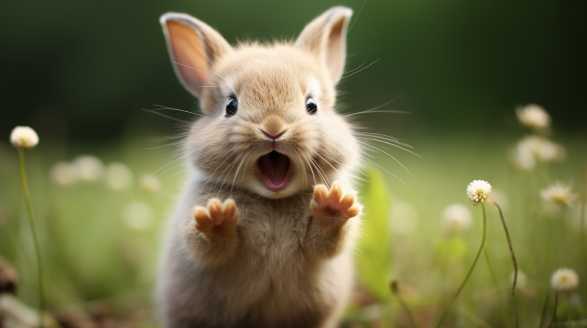
As a rabbit owner, one of the most important aspects of your furry friend’s health is their poop. Yes, you heard it right: poop!
we will look into the fascinating world of rabbit poop and explore the various effects of dietary modifications. So hold on to your seats and get ready for a wild ride!
Why Diet Matters
Rabbits have a sensitive digestive system, and their diet plays a significant role in their overall health. Unlike other pets, such as cats and dogs, rabbits require a diet primarily consisting of fiber-rich foods.
This natural behavior is called “coprophagy” and is essential for their well-being.
Poop Before the Storm: Normal Rabbit Feces
Before we dive into the impact of diet changes on a rabbit’s poop, let’s understand what normal rabbit feces should look like. Here’s what to expect from your fluffy companion’s droppings under a healthy diet:
- Size: Rabbit feces are typically small and round, resembling little granules. They should be consistent in size, with each pellet measuring around 1 cm in diameter.
- Color: Healthy rabbit poop ranges from light to dark brown. However, slight variations are normal depending on their diet.
- Shape: The poop should have a distinctive shape, similar to peas or marbles.
- Texture: Normal droppings are firm and not too soft or hard.
- Odor: Rabbit feces have a mild earthy smell, but they should not have a foul odor.
The Poopocalypse: Effects of Diet Changes
Changing your rabbit’s diet can have dramatic effects on their poop. Be prepared for a poopocalypse!
1. Increased Poop Production
When introducing a new type of food, your rabbit’s gut bacteria need time to adjust. This adjustment period may lead to an increase in poop production.
2. Soft or Runny Stool
Switching to a diet that lacks sufficient fiber can result in soft or runny stool. This occurs when the balance of good bacteria in their gut is disrupted.
3. Hard and Dry Droppings
On the other hand, a sudden increase in fiber without proper hydration can cause dry and hard droppings. Just like humans, rabbits require enough water to keep their stool soft and comfortable to pass.
Dietary Adjustments for Optimal Pooptastic Results
Nobody wants to live in a world of messy rabbit poop. Fortunately, you can make dietary adjustments to improve your furry friend’s bowel movements.
1. Introduce Foods Gradually
When changing your rabbit’s diet, introduce new foods gradually. Slowly mix the new food with their current diet over several days to allow their digestive system to adapt.
2. Increase Fiber Intake
Fiber is the key to a rabbit’s healthy digestion. Ensure their diet includes plenty of hay, leafy greens, and fresh vegetables.
3. Hydration is Essential
Make sure your rabbit has access to fresh water at all times. A hydrated bunny is a happy bunny, and it will reflect in their poop consistency too!
4. Monitor Poop Changes
Keep a close eye on your rabbit’s poop as you make dietary adjustments. If you observe any severe or prolonged changes, consult your veterinarian for guidance.
Congratulations! You’ve now become a poop expert in the world of rabbits.
By carefully monitoring their droppings and making appropriate dietary adjustments, you can ensure your furry friend’s digestive system is in top shape.
So, embrace the mysteries of rabbit poop, and let your bunny’s bowel movements guide you towards providing the best possible care. After all, a happy poop means a happy bunny!
Medical Conditions that Cause Excessive Rabbit Pooping: What Owners Should Know
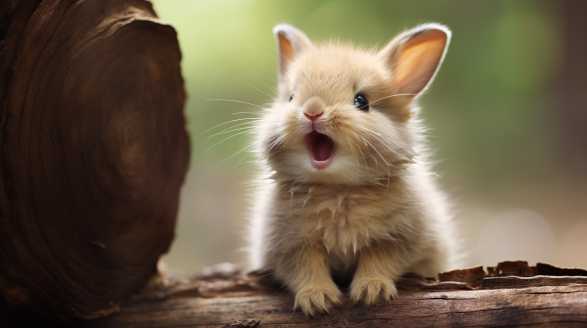
As a devoted rabbit owner, I have always been fascinated by the quirkiness and charm of these adorable furry creatures. However, there have been instances when I noticed my pet rabbit pooping excessively, and it left me perplexed and worried.
I will share my knowledge and shed light on the various conditions that can lead to excessive rabbit pooping, along with helpful tips for concerned owners like you.
1. Gastrointestinal Disorders
Rabbits are notorious for their sensitive digestive systems, which can easily become upset. Here are some gastrointestinal disorders that may cause excessive rabbit pooping:
a) Gastrointestinal Stasis
Gastrointestinal stasis is a condition where a rabbit’s digestive tract slows down or stops completely. This can lead to a decrease in appetite, reduced fecal output, and a buildup of gas in the digestive system.
Seek immediate veterinary attention if you suspect your rabbit is suffering from gastrointestinal stasis.
b) Gastroenteritis
Gastroenteritis, commonly known as the rabbit’s version of an upset stomach, is another condition that can cause excessive pooping. It is often caused by a bacterial or viral infection, dietary changes, or stress.
2. Diet-Related Issues
A balanced diet plays a crucial role in a rabbit’s overall health, including their digestive system. Here are some diet-related issues that can lead to excessive pooping in rabbits:
a) Poor Diet or Sudden Dietary Changes
Feeding your rabbit an improper diet or suddenly changing their diet can upset their delicate digestive balance. A diet lacking in fiber or rich in carbohydrates can lead to digestive disturbances, prompting the rabbit to produce more feces than usual.
b) Overconsumption of High-Water-Content Foods
Rabbits have a tendency to overeat certain high-water-content foods, such as lettuce and other leafy greens. These foods can cause loose stools and excessive pooping.
3. Parasitic Infections
Parasites can wreak havoc on a rabbit’s digestion and overall well-being. Some common culprits include:
a) Coccidiosis
Coccidiosis is a parasitic infection caused by a microscopic organism called coccidia. When infected, rabbits may experience diarrhea, including excessive pooping.
4. Stress or Anxiety
Like humans, rabbits are also susceptible to the effects of stress and anxiety. Here’s how these psychological factors can contribute to excessive rabbit pooping:
a) Environmental Changes
Rabbits are creatures of habit, and sudden changes to their environment can induce stress and anxiety. This can result in increased bowel movements and excessive pooping.
b) Predatory Threats
Rabbits are prey animals, and the presence of predators or even perceived threats can trigger a stress response. This heightened state of alertness can lead to more frequent bowel movements and excessive pooping.
As an involved rabbit owner, it is important to be observant and knowledgeable about the various medical conditions that can cause excessive pooping in rabbits. By understanding the potential underlying causes, such as gastrointestinal disorders, diet-related issues, parasitic infections, and stress, you can better ensure the health and well-being of your furry companion.
With proper care and attention, your rabbit will continue to bring joy and happiness to your life while maintaining a healthy digestive system.
The Role of Fiber in a Rabbit’s Diet and Its Impact on Poop Production
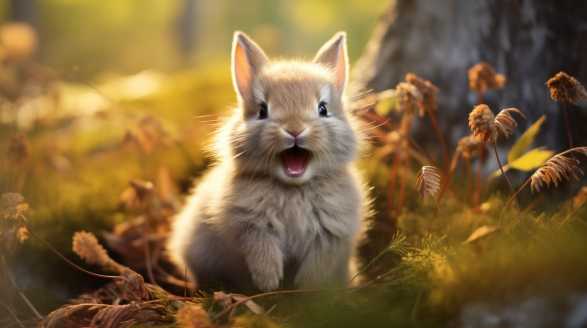
As a rabbit enthusiast, one thing that has always fascinated me is the role of fiber in my furry friend’s diet. It may seem like a strange topic of conversation, but trust me, there’s more to it than meets the eye.
Today, I’m going to look into the intriguing world of fiber and its impact on poop production. Let’s hop right in!
Why is Fiber Important for Rabbits?
You may be wondering, why should we even bother about fiber in a rabbit’s diet? Well, fibers are like the magic wand of digestion for our beloved bunnies.
- Maintaining a Healthy Digestive System: Rabbits have a unique digestive system that primarily relies on fiber. Consuming a diet rich in fibers helps keep their gut healthy, preventing issues like gastrointestinal stasis.
- Preventing Dental Problems: Chewing on high-fiber foods, such as hay, helps wear down a rabbit’s continuously growing teeth. This prevents dental problems and keeps their chompers in excellent shape.
- Regulating Appetite: High-fiber foods increase the sense of satiety in rabbits, ensuring they stay full and satisfied. This helps prevent overeating and obesity, which can lead to a myriad of health issues.
- Promoting Proper Weight Management: Fiber-rich foods are low in calories, making them an excellent choice for rabbits who need to shed a few pounds. It allows them to feel full without consuming excessive calories.
Fiber and Poop Production
Now, let’s dive into the thrilling topic of poop production! Believe it or not, fiber has a substantial impact on a rabbit’s poop.
- Ensuring Proper Gut Motility: Fiber acts as a natural laxative for rabbits, promoting regular bowel movements. It provides bulk to their droppings, preventing issues like constipation.
- The Amazing Cecotropes: Rabbits have a unique digestive process where they produce two types of droppings: hard fecal pellets and soft, nutrient-rich cecotropes. Cecotropes are rich in fiber and essential nutrients like vitamins and proteins. They are critical for a rabbit’s overall health and wellbeing.
- The Importance of Hay: High-quality hay is an excellent source of long-strand fiber for rabbits. It helps maintain the ideal balance between regular fecal pellets and cecotropes, ensuring a healthy digestive system and overall well-being.
Fiber-Rich Foods for Rabbits
Now that we understand the significance of fiber in a rabbit’s diet let’s explore some fiber-rich foods that we can incorporate into their meals. Remember, variety is the spice of life, so don’t be afraid to mix things up!
- Premium Quality Hay: This should make up the majority of a rabbit’s diet. Opt for grass hays like Timothy, Orchard, or Meadow hay. Make sure it’s fresh, fragrant, and free from dust or mold.
- Leafy Greens: Dark, leafy greens like kale, parsley, spinach, and romaine lettuce are a great addition to a rabbit’s diet. They provide additional fiber and valuable nutrients.
- Herbs: Fresh herbs like cilantro, basil, dill, and mint are not only tasty for rabbits but also packed with fiber. A sprinkle of these herbs can add some excitement to their meals.
- Vegetables: Carrots, bell peppers, broccoli, and zucchini are some fiber-rich veggies that can be offered in moderation. Remember, vegetables should be introduced gradually to avoid digestive upset.
Tips for Incorporating Fiber into a Rabbit’s Diet
To ensure your bunny gets the right amount of fiber and enjoys a healthy poop production, here are some handy tips to follow:
- Introduce New Foods Gradually: Rabbits have sensitive digestive systems, so introducing new foods slowly prevents digestive upset.
- Maintain a Balanced Diet: While fiber is essential, a rabbit’s diet should also include appropriate amounts of fresh water, pellets, and occasional treats. Talk to your veterinarian for personalized advice on your rabbit’s diet.
- Provide Unlimited Hay: Always ensure there’s an ample supply of fresh and good quality hay available for your rabbit. It should be the primary component of their diet.
- Observe Poop Production: Pay attention to your rabbit’s droppings. If you notice any significant changes in frequency, consistency, or size, consult your veterinarian.
Who would have thought that poop production could be linked to such an exciting topic as fiber in a rabbit’s diet? Now that you understand the importance of fiber in your furry friend’s life, you can see why it’s crucial to provide a diet rich in high-quality hay, leafy greens, and other fiber-rich foods.
Keep your furry friend hopping with joy by incorporating fiber into their diet today.
Exploring the Relationship Between a Rabbit’s Gender and Pooping Habits
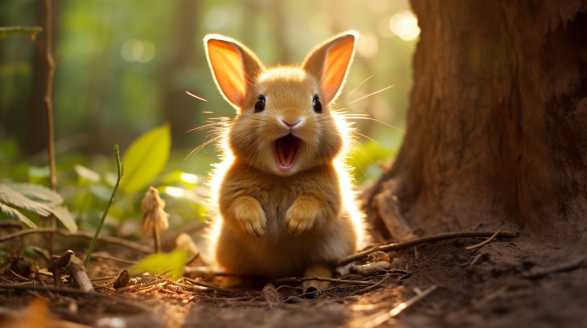
Ah, the mysterious world of rabbits! These delightful creatures never fail to amaze us with their unique behaviors and characteristics.
It’s bound to be a wild ride, so let’s hop to it!
The Amazing World of Rabbit Poop
Before we dive into the gender-specific aspects, let’s take a moment to appreciate the fascinating realm of rabbit poop. Rabbit droppings, often referred to as “pellets,” are unlike any other creature’s excretions.
It’s All About the Gender!
Male Rabbits: The Pooping Powerhouses
When it comes to the relationship between gender and pooping habits, let’s start with the males. Male rabbits, also known as bucks, are absolute pooping powerhouses.
This heightened level of productivity may be influenced by several factors:
- Hormonal Influence: As male rabbits mature, their hormones kick into high gear, leading to an increased frequency and volume of poop production. It’s their way of marking territory and attracting potential mates.
- Larger Size: Male rabbits are generally larger in size compared to females. This means they have a larger digestive system, resulting in the ability to digest and eliminate more food, hence more poop!
- Active Lifestyle: Bucks tend to be active and energetic creatures, constantly on the move. This increased activity level stimulates their digestive system, leading to more frequent bowel movements.
Female Rabbits: The Poop Protectors
Now, let’s turn our attention to female rabbits, affectionately known as does. While they may not produce as much poop as their male counterparts, they play a crucial role in ensuring the health and hygiene of their warrens.
- Nest Building: Female rabbits engage in extensive nest building activities, especially before giving birth. This behavior helps to ensure a safe and clean environment for their offspring. As a result, female rabbits may temporarily reduce their own poop output during this nesting period.
- Pregnancy and Nursing: The reproductive cycle of female rabbits can also impact their pooping habits. During pregnancy and nursing, does prioritize the needs of their young ones, which may include altering their own elimination patterns.
- Territorial Marking: Like their male counterparts, female rabbits also use poop as a means of territorial marking. While they may not produce as much volume, their poop pellets are regularly scattered around their warren boundaries to establish ownership.
Ensuring Healthy Pooping Habits for Your Rabbit
Now that we understand the gender differences in rabbit pooping habits, it’s important to ensure our furry friends maintain good digestive health. Here are some tips to keep their pooping habits in tip-top shape:
1. Provide a Balanced Diet
Rabbits are herbivores, and their digestive system thrives on a diet high in fiber. Offer them a variety of fresh hay, leafy greens, and rabbit pellets specially formulated for their nutritional needs.
2. Offer Plenty of Water
Just like humans, rabbits need an adequate supply of water to keep their digestive system running smoothly. Make sure clean and fresh water is always available for your furry friend to stay hydrated.
3. Provide Mental Stimulation
Boredom can lead to digestive issues and irregular pooping habits in rabbits. Engage your furry friend with interactive toys, tunnels, and puzzles.
4. Establish a Routine
Rabbits thrive on routines, and establishing regular feeding and play times can significantly impact their ability to maintain consistent pooping habits. Try to stick to a consistent schedule to create a sense of stability for your furry companion.
The Marvels of Bunny Poop – Concluding Thoughts
As we wrap up this captivating exploration of the relationship between a rabbit’s gender and their pooping habits, one thing becomes abundantly clear – rabbits never fail to surprise and intrigue us! From the powerful poop production of male rabbits to the nesting instincts of females, every aspect of their lives is fascinating.
So, the next time you observe your fluffy friend’s impressive pooping capabilities, remember the impact their gender may have on this bodily function. With the right care, attention, and understanding, you can ensure your bunny stays healthy, happy, and poops like a superstar!
Happy furry adventures!
Age-Related Changes in Rabbit Poop: From Kits to Seniors
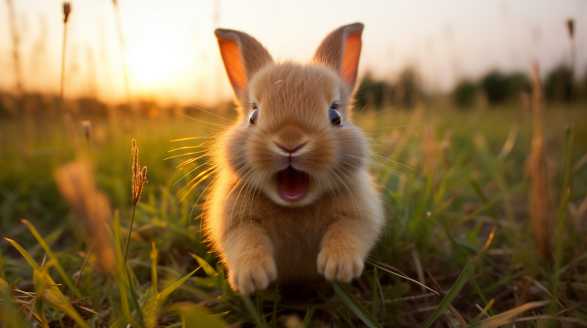
Raising rabbits as pets or for agricultural purposes can be a fascinating and rewarding experience. These adorable, furry creatures bring joy to our lives with their playful antics and unique personalities.
I will look into the age-related changes in rabbit poop, from kits to seniors, and provide you with useful insights to ensure the well-being of your furry companions.
The Poop of a Kit (Baby Rabbit)
When a rabbit is born, it starts its life as a cute little kit. As you might expect, their poop is quite different from that of adult rabbits.
- Size: The droppings of a kit are extremely small and typically resemble tiny blackberries or grapes in size.
- Consistency: Kit poop is soft, often described as being similar to a thick, sticky pudding. It is not as firm as adult rabbit poop.
- Frequency: Kits produce quite a lot of poop compared to adult rabbits. This is due to their high metabolic rate and rapid growth.
- Color: The color of kit poop is generally darker and more intense than that of adult rabbit poop. It ranges from dark brown to black.
Transition to Adolescence: Poop Changes
As your baby rabbit grows, it gradually moves towards adolescence. This stage brings some noticeable changes in their poop as well.
- Size: The droppings of an adolescent rabbit are larger when compared to those of kits. They resemble small, spherical pellets.
- Consistency: Adolescent rabbit poop is firmer and better-formed than that of kits. It holds its shape and can be easily picked up.
- Frequency: As rabbits mature, their metabolic rate slows down, leading to a decreased frequency of poop production. Adolescent rabbits produce less waste compared to kits.
- Color: The color of adolescent rabbit poop is typically a medium brown shade, which is slightly lighter than that of kits.
Prime Adulthood: Poop Characteristics
During their prime adulthood, rabbits exhibit certain poop characteristics that remain relatively stable. Here’s what you can expect:
- Size: The droppings of adult rabbits are consistently-sized round pellets. These pellets are larger than those produced during adolescence but still relatively small.
- Consistency: Adult rabbit poop maintains its firmness, similar to that of adolescence. It is easy to scoop and dispose of due to its well-formed structure.
- Frequency: Adult rabbits have a regular pooping routine. They typically produce several hundred droppings per day. However, each individual rabbit may have slightly different habits.
- Color: Adult rabbit poop usually has a light to medium brown color. It can also vary depending on the rabbit’s diet.
The Golden Years: Poop Changes in Senior Rabbits
Just like humans, rabbits also experience age-related changes as they enter their senior years. The poop of senior rabbits might differ in the following ways:
- Size: The size of droppings tends to gradually decrease as rabbits age. Senior rabbit poop is generally smaller, reminiscent of the size observed during their kit stage.
- Consistency: Senior rabbit poop can become softer and less firm. This change is often linked to reduced muscle tone and digestive system functioning.
- Frequency: The frequency of poop production in senior rabbits may slightly decrease. However, it is crucial to monitor their bowel movements and ensure no significant changes occur, as this could indicate health issues.
- Color: Senior rabbit poop may appear slightly lighter or darker than that of adult rabbits due to age-related changes in the digestive process.
Importance of Monitoring Rabbit Poop
Understanding the changes that occur in rabbit poop throughout their lifespan is vital for several reasons:
- Health Monitoring: Changes in poop characteristics can be an important indicator of a rabbit’s overall health. Monitoring your rabbit’s poop regularly can help detect potential health issues early on.
- Diet Adjustments: By regularly observing their poop, you can determine if your rabbit’s diet needs modification. Discrepancies in color, consistency, or frequency can highlight the need for dietary adjustments.
- Digestive Disorder Detection: Poop changes, such as constant diarrhea or lack of bowel movements, can signify underlying digestive system disorders that require veterinary attention.
- Parasite Infestations: Keeping an eye on rabbit poop can aid in detecting the presence of parasites such as worms. Prompt treatment can help prevent further health complications.
Understanding the age-related changes in rabbit poop is essential for all rabbit owners. By closely monitoring the size, consistency, frequency, and color of your rabbit’s poop throughout their life stages, you can ensure their well-being and detect any potential health issues promptly.
With proper care and attention, your rabbits will thrive and continue to bring you joy throughout their lives.
The Digestive System of Rabbits: An Explanation for Their Frequent Pooping
As a proud rabbit owner, I have always marveled at the adorable and often perplexing behavior of these furry creatures. One aspect that has always intrigued me is their frequent pooping.
I will unravel the mysteries behind the digestive system of rabbits and shed some light on why they seem to be pooping machines!
What Goes in, Must Come Out: The Rabbit’s Digestive Journey
The digestive system of a rabbit is truly fascinating. These adorable critters are herbivores, which means their diet primarily consists of plant material.
So, here’s how it all goes down:
- ## The Mouth – Where the Adventure Begins
When a rabbit chomps down on its leafy greens or crunchy pellets, the digestive process kicks off in its mouth. Rabbits have a unique way of chewing their food called “mastication.”
This ensures that the food is finely ground, making it easier to break down further along the digestive tract.
- ### The Untamed Jungle: The Rabbit’s Stomach
Unlike our own stomachs, which have acidic environments, rabbits have a two-part stomach. The first section, called the “fermentation chamber,” sounds like a wild ride already!
It’s like a party where the good bacteria are having a feast!
The second section is the true stomach, which releases digestive enzymes to further break down the food before it moves on to the small intestine.
- ##### The Mighty Small Intestine Joins the Quest for Nutrition
After the stomach, the partially digested food makes its way into the small intestine. This is where the real magic happens!
These villi are like the heroes of the rabbit’s digestive tract, absorbing all the essential nutrients into the bloodstream. No villainous nutrient gets away!
- ## Caecotrophs: The Nutritional Superheroes
Now, here’s where it gets really interesting! Rabbits have a rather peculiar habit called “caecotrophy.”
Well, sit tight, because this is where we uncover the secret behind their frequent pooping adventures!
Within the rabbit’s large intestine, there’s a pouch called the caecum. This marvelous pouch is populated by a vast community of microbes.
These cecotropes are not your typical droppings but rather soft clusters of nutrients that pack a powerful punch.
Here’s the interesting part: rabbits actually consume their own cecotropes! Yes, you heard that right.
But before you grimace, let me explain. Cecotropes contain essential nutrients, such as proteins and B vitamins, that couldn’t be fully absorbed in the small intestine.
- ### The Grand Finale: The Final Poop Extravaganza
After this round of caecotrophy, the indigestible fibers and waste matter proceed through the rest of the large intestine and into the colon. And voila – here we have the familiar pellet-shaped poops that you commonly find in your rabbit’s hutch or litter box.
Why Are Rabbits Such Frequent Poopers?
Now that we’ve uncovered the inner workings of a rabbit’s digestive system, let’s tackle the burning question: why exactly do rabbits poop so frequently?
The answer lies in their high-fiber diet. Rabbits need to consume a large volume of plant material to meet their nutritional needs.
Additionally, their digestive system is optimized to extract maximum nutrition from their food, resulting in smaller, more frequent bowel movements.
To sum it all up, the digestive system of rabbits is finely tuned to their high-fiber herbivorous diet. From their unique chewing style to the fermentation chamber in their stomachs and the nutrient-packing caecotropes, every step serves a vital purpose in extracting maximum nutrition.
So, the next time you catch your rabbit gleefully hopping around and leaving a trail of tiny poops behind, remember that this is an essential part of their digestive system’s fascinating journey. Embrace the quirkiness and be proud of your fluffy friend’s frequent pooping adventures – it’s all a part of what makes rabbits so unique and lovable!
Conclusion
Wow, what a journey we’ve been on! Who would have thought that rabbit poop could be so fascinating?
From the unique digestive system to the wonders of cecotropes, we’ve delved into a world that is truly awe-inspiring.
I have to admit, when I first became a rabbit owner, I never thought I would be so captivated by the intricacies of poop. But here we are, discussing the ins and outs of bunny droppings like it’s the most fascinating topic in the world.
It kind of is! Who knew that something as simple as poop could tell us so much about a rabbit’s health, diet, and behavior?
But let’s not forget the bigger picture here. Behind all the poop talk, there’s a deeper message – a message about love, care, and understanding.
We can ensure their health, happiness, and overall well-being.
So, my fellow rabbit enthusiasts, I encourage you to embrace the wonders of rabbit poop. Celebrate the frequent pooping sessions and the intricate process of cecotrophy.
As we close this chapter, let’s take a moment to appreciate the magic and awe of the rabbit hole we’ve fallen into. From the mysteries of poop production to the impact of diet changes and the differences between genders and age groups, we’ve traversed a world that is as enchanting as it is educational.
So, my friends, go forth and share your newfound knowledge with fellow rabbit enthusiasts. Spread the joy of understanding and caring for these amazing creatures.
Until next time, keep embracing the wonders of the rabbit world and may your furry companions continue to delight and inspire you. Happy pooping adventures!
Frequently Asked Questions
Why do rabbits poop so much?
- Rabbits have a unique digestive system that requires them to constantly eat and eliminate waste. Their diet is rich in fiber, which passes quickly through their digestive tract, resulting in frequent and numerous bowel movements.
Is it normal for rabbits to have a lot of poop?
- Yes, it is completely normal for rabbits to have a lot of poop. In fact, rabbits can produce hundreds of small, round droppings daily. This is a natural part of their digestive process and helps maintain their overall health.
Does the amount of poop indicate a rabbit’s health?
- Yes, the amount of poop a rabbit produces can be a good indicator of its health. Any significant decrease or increase in the amount of poop should be monitored closely. If you notice a sudden drop in poop production or the presence of abnormal poop, it is advisable to consult a veterinarian.
Can a rabbit’s diet affect its poop production?
- Absolutely! A rabbit’s diet plays a crucial role in its bowel movements. A healthy diet consisting of fresh grass hay, leafy greens, and a limited amount of pellets promotes proper digestion and helps regulate poop production. Any sudden changes or inconsistencies in the diet can affect a rabbit’s poop.
What does normal rabbit poop look like?
- Normal rabbit poop consists of small, round, dry pellets without any strong odor. It should be uniform in shape and size. The color may vary depending on the diet but is usually brown. Any deviations in shape, size, color, or consistency may indicate an underlying health issue.
Can stress or illness cause changes in a rabbit’s poop?
- Yes, both stress and illness can cause changes in a rabbit’s poop. Stressful situations such as a change in environment, loud noises, or the presence of predators can lead to softer or irregular-shaped droppings. Additionally, illnesses affecting the digestive system can cause changes in the color, consistency, or frequency of poop.
When should I be concerned about my rabbit’s poop?
- You should be concerned about your rabbit’s poop if you notice any significant changes that persist for more than a day or two. This includes sudden decreases or increases in the amount of poop, abnormal colors, presence of blood, excessive mucus, or any other unusual characteristics. Contact a veterinarian to seek professional guidance and ensure your rabbit’s health and well-being.
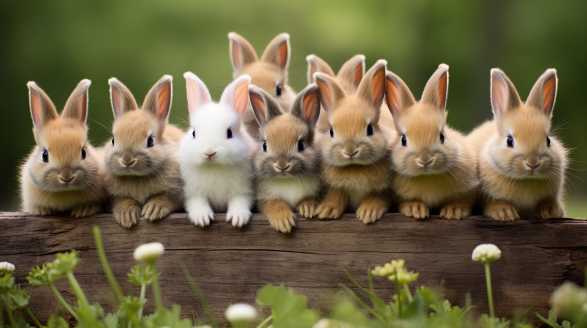
All About Rabbit Colonies
Introduction As a self-proclaimed animal enthusiast, I’ve spent countless hours observing and studying the incredible world of wildlife. But today, I’m thrilled to look into one of my absolute favorite creatures of all time – the wild rabbit! Picture this: lush green fields, a gentle breeze, and a community of wild rabbits scurrying about with […]
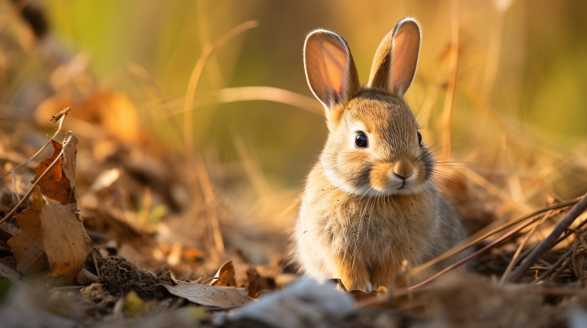
Do Rabbits Have Periods
Introduction Do rabbits have periods? Let’s find out. Get ready to have your curiosity piqued and your mind blown! Picture this: a world where fluffiness meets fertility, where hopping creatures mysteriously navigate their menstrual cycles. As a nature lover and self-proclaimed rabbit connoisseur, I confess that I, too, was initially taken aback by the concept […]
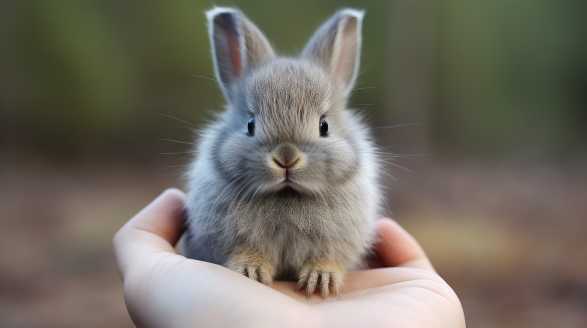
Netherland Dwarf Rabbit Colors
Introduction Are you ready to dive into the fascinating world of Netherland Dwarf rabbits? These adorable little furballs are known for their petite size and oh-so-cute appearance, but there’s so much more to them than meets the eye. So whether you’re a proud Netherland Dwarf rabbit owner or simply a bunny enthusiast, get ready to […]
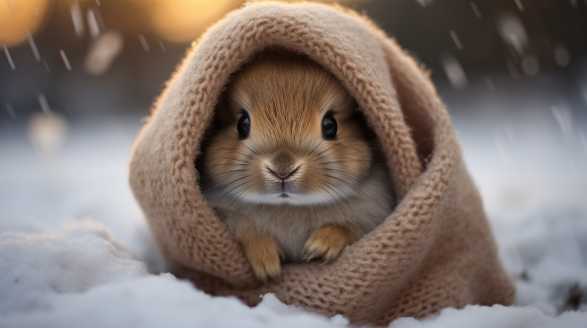
How To Keep Rabbits Warm in The Winter
Introduction Hey there, fellow rabbit lovers! Winter is just around the corner, and as responsible bunny owners, it’s essential for us to ensure the well-being and comfort of our adorable companions. Winter can be a bit challenging for rabbits, who are sensitive creatures that require extra care to thrive in low temperatures. From managing humidity […]
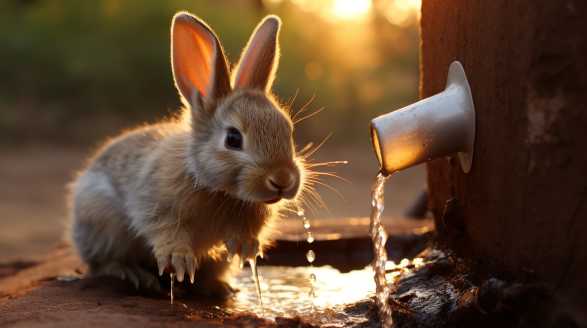
What Do Rabbits Drink
Introduction Are you a rabbit owner looking to make sure your furry friend is getting the best care possible? You’re in the right place! You might already know that rabbits need a balanced diet to stay healthy, but did you know that water is a crucial part of that equation? It’s true! But how much […]
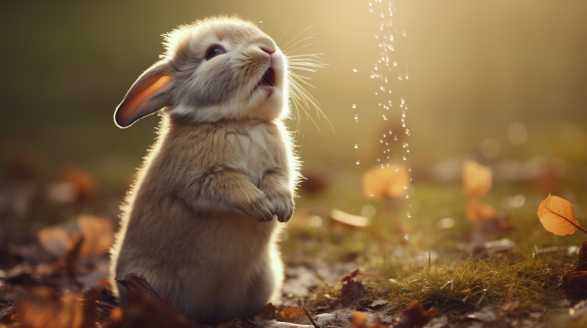
Can Rabbits Get Sick
Introduction Hey there, rabbit owners and enthusiasts! Are you ready to dive into the world of rabbit health and care? As a proud rabbit owner myself, I understand the love and concern we have for our furry companions. We want nothing but the best for them, right? we’ll be covering a range of topics related […]
